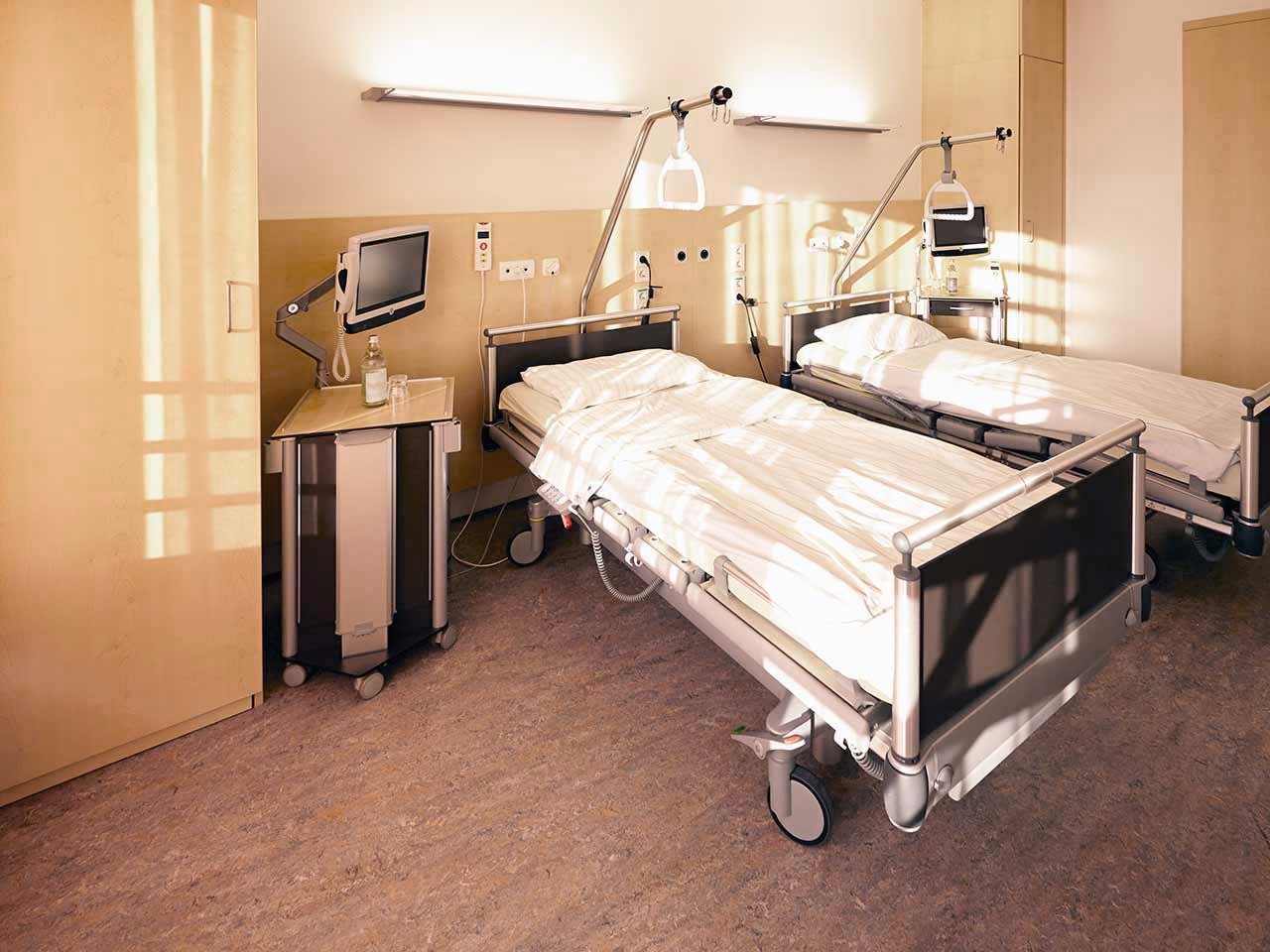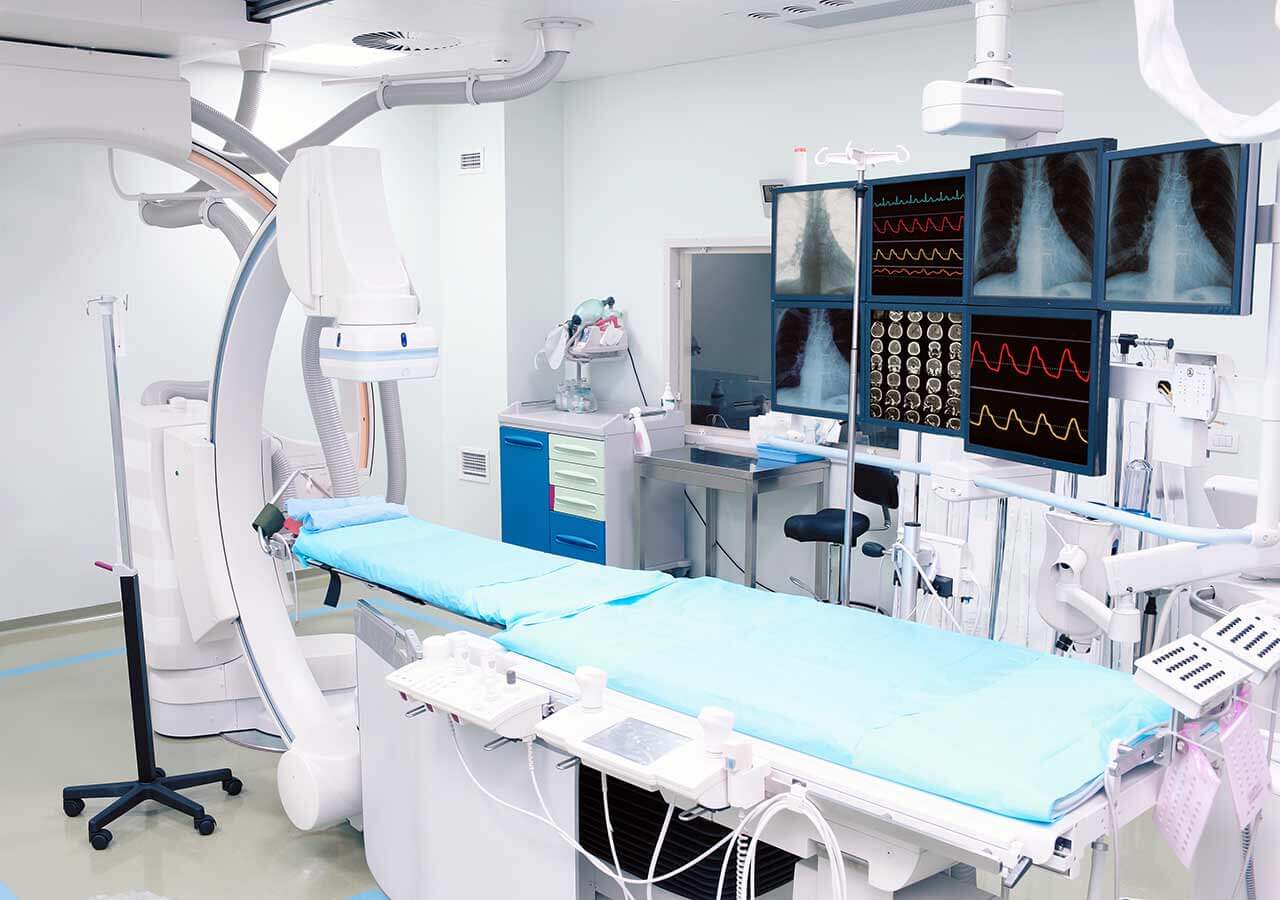
The program includes:
- Initial presentation in the clinic
- clinical history taking
- review of medical records
- physical examination
- laboratory tests:
- complete blood count
- biochemical analysis of blood
- Lipid metabolism (HDL/LDL, cholesterol,
triglycerides Lip(a), homocysteine) - blood coagulation analysis (aPTT, PT, INR)
- inflammation indicators (CRP, ESR)
- metabolic status (uric acid, total glucose, HbA1c)
- cardiovascular disease risk markers
- kidney function test (creatinine, urea)
- color doppler echocardiography
- color doppler sonography of cerebral peripheral vessels
- duplex peripheral arteries
- CT/ MRI-angiography of carotid vessels
- preoperative care
- thromboendarterectomy of carotid artery
- blood transfusions (if needed)
- 1-day intensive care unit stay
- symptomatic treatment
- control examinations
- the cost of essential medicines and materials
- nursing services
- full hospital accommodation
- developing of further guidance
Required documents
- Medical records
- Ultrasound scan and angiography (if available)
Service
You may also book:
 BookingHealth Price from:
BookingHealth Price from:
About the department
According to the Focus magazine, the Department of General, Abdominal and Vascular Surgery at the University Hospital Jena ranks among the top German medical facilities specializing in the treatment of bowel cancer!
The department offers the full range of surgical treatment of diseases of the abdominal organs and blood vessels, including the transplantation of abdominal organs. The sparing minimally invasive surgical techniques are widely used in the clinical practice, which allow to provide treatment in simple and complex clinical cases by making small incisions and using special tiny surgical instruments. The exceptional experience and profound knowledge of the department's doctors are also an integral part of the high treatment success rates. The department is headed by Prof. Dr. med. Utz Settmacher.
The department’s special focus is the treatment of abdominal cancers. To provide modern, comprehensive therapy, the department maintains close cooperation with the specialists from related fields (gastroenterologists, oncologists, radiation therapists, radiologists, etc.). The department regularly holds interdisciplinary tumor boards, during which each clinical case is considered in detail and the patient receives an optimal treatment strategy. In certain cases, the treatment may be carried out as part of clinical trials. The department's specialists have gained an excellent reputation in the treatment of intestinal, liver and other abdominal cancers (certification of the German Cancer Society).
Another department’s priority is the treatment of vascular diseases. To treat such pathologies, the doctors have in their arsenal all modern methods of open and endovascular surgery. The department works closely with its partners in the field of angiology, radiology, nephrology and neurology within the Center for Vascular Diseases.
In addition, the department's surgeons specialize in isolated, combined (for example, simultaneous kidney-pancreas transplantation), as well as multivisceral transplantations.
The department’s clinical focuses include:
- General surgery
- Hernia repair and surgery to treat anterior abdominal wall injuries (umbilical, inguinal, incisional hernia)
- Emergency treatment of hemorrhage and perforation
- Abdominal surgery
- Stomach cancer treatment
- Bowel cancer treatment
- Liver cancer treatment
- Treatment of liver cancer metastases
- Cecal cancer surgery
- Colon cancer treatment
- Vascular surgery
- Open interventions
- Endovascular procedures
- Transplantation surgery
- Isolated transplantations
- Combined transplantations
- Multivisceral transplantations
- Hepato-pancreato-biliary surgery
- Colorectal surgery
- Bariatric surgery (surgical treatment of obesity)
- Other medical services
Photo of the doctor: (c) Universitätsklinikum Jena
About hospital
According to the prestigious Focus magazine, the University Hospital Jena regularly ranks among the top German medical facilities!
The hospital has positioned itself as a multidisciplinary medical facility with a long history of more than 200 years. Since its foundation, the hospital has been constantly developing and modernizing, thanks to which nowadays it offers patients the highest level of treatment in Germany based on the use of innovative technologies and the very latest therapeutic techniques. The hospital consists of 26 specialized departments and 25 research institutes. It treats more than 53,600 inpatients and about 274,000 outpatients every year. The staff of the hospital includes more than 5,600 competent doctors.
The extensive resources of the university hospital, high treatment standards, and the introduction of new research developments provide first-class treatment in Germany meeting the stringent international standards. The hospital has an excellent reputation not only in Germany, but also far beyond its borders, due to which it accepts a large number of foreign patients for the diagnostics and treatment.
Despite the technical progress and the availability of accurate computerized systems, the patient’s physical health and emotional state is the main value of each employee of the hospital, since some diagnoses cause emotional distress in patients. The doctors of the hospital believe that the key to a successful result is a comprehensive and individual approach, so they spend a lot of time talking with patients, listen carefully to all their wishes and support at all stages of the therapeutic process. All this in combination with high-precision diagnostic techniques and the very latest types of therapy forms a solid basis for the achievement of an optimal treatment result.
Photo: (c) depositphotos
Accommodation in hospital
Patients rooms
The patients of the University Hospital Jena live in comfortable single and double rooms made in a modern design. Each patient room is equipped with an ensuite bathroom with shower and toilet. The room has enough space to store personal belongings, as well as a table and chairs for receiving visitors. A bedside table can be converted into a table so that patients can eat right in their bed. Each room has a TV, and there is also access to the Internet. In addition, the hospital offers enhanced-comfort rooms.
Meals and Menus
The patient and his accompanying person have a daily choice of three menus. If for some reason the patient does not eat all the foods, he will be offered an individual menu. Please inform the medical staff about your dietary preferences prior to the treatment.
Further details
Standard rooms include:
Religion
Religious services are available upon request.
Accompanying person
During the inpatient program, an accompanying person may stay with you in a room or at the hotel of your choice.
Hotel
During the outpatient program, you can live at a hotel of your choice. Managers will help you to choose the most suitable options.





